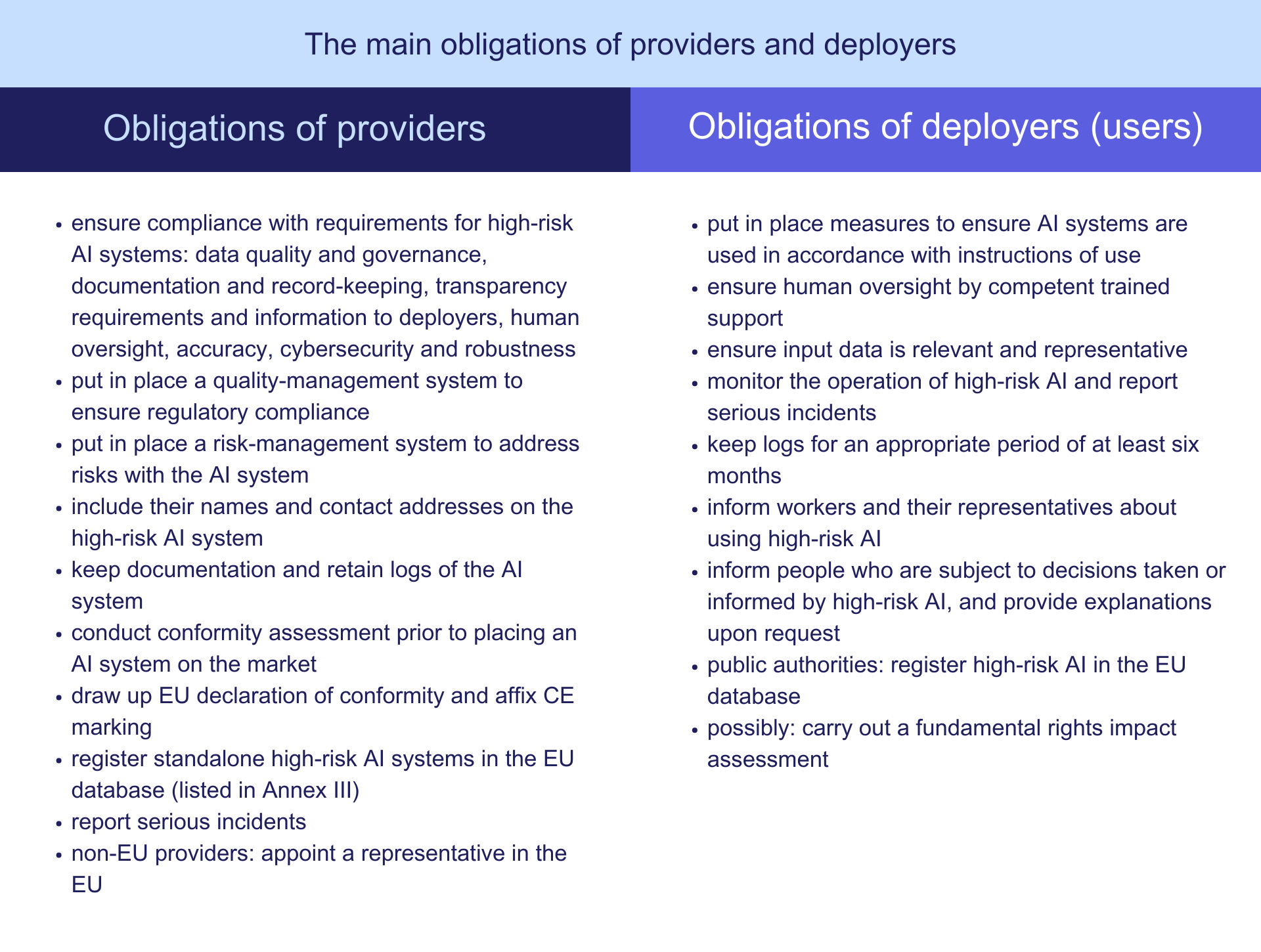The EU AI Act: Part Three – General-Purpose Models | Cozen O ...
This is part three of our examination of the European Union’s new artificial intelligence law (the “EU AI Act”). In part one, we introduced the scope of the EU AI Act and discussed what types of AI systems are outright banned. In part two, we discussed high-risk AI systems. In this article, we look at the requirements for general-purpose AI models.
General-Purpose AI Model
The EU AI Act defines a “general-purpose AI model” as an AI model, including one that is trained with a large amount of data using self-supervision at scale, that displays significant generality, is capable of competently performing a wide range of tasks, and can be integrated into a variety of downstream systems or applications. These are often referred to as “foundation models.” Examples include Open AI’s GPT, Anthropic’s Claude, Meta’s Llama, and Stability AI’s Stable Diffusion.

The EU AI Act creates a sub-category for general-purpose AI models with systemic risk. “Systemic risk” is defined as having (i) a significant impact on the EU market due to a model’s reach or (ii) reasonably foreseeable negative effects on public health, safety, public security, fundamental rights, or society as a whole that can be propagated at scale. Examples of systemic risk include major accidents, disruptions of critical economic sectors, negative effects on democratic processes, and the dissemination of discriminatory information.
“High-impact capabilities” are capabilities that match or exceed the capabilities of the most advanced general-purpose AI models.
A general-purpose AI model has systemic risk if it has been determined through the use of appropriate technical tools and methodologies to have high-impact capabilities or has been designated by an EU scientific panel as having high-impact capabilities. The provider of a general-purpose AI model must notify the EU, through a designated authority created by each member state, within two weeks of determining that its general-purpose AI model represents a systemic risk. The EU can also assign a scientific panel to evaluate general-purpose AI models that have not been designated as having systemic risk.

A general-purpose AI model is presumed to have high impact capabilities and, therefore, to have systemic risk, when the cumulative amount of computation used for its training, measured in floating point operations (“FLOPs”), is greater than 1025. The cumulative amount of computation used for training includes computation across all activities and methods that enhance the capabilities of the model prior to deployment, such as pre-training, synthetic data generation, and finetuning. FLOPs represent the number of calculations performed during training, expressed as a floating point number. The higher the value, the greater the power of a model. For a sense of scale, most of us would consider 10 trillion to be a very large number. 10 trillion is only 1*1013.
The EU science panel is directed to take the following into account when determining whether a category for a general-purpose AI model has systemic risk:
Obligations for Providers of General-Purpose AI Models
Providers of all general-purpose AI models, regardless of their systemic risk status, must:
Obligations for Providers of General-Purpose AI Models with Systemic Risk
Providers of general-purpose AI models with systemic risk have additional obligations, including to:
In the next article, we look at low risk AI systems as well as enforcement issues. See more »
DISCLAIMER: Because of the generality of this update, the information provided herein may not be applicable in all situations and should not be acted upon without specific legal advice based on particular situations. Attorney Advertising.© Cozen O'Connor
Back to Top Explore 2024 Readers' Choice Awards Copyright © JD Supra, LLC









